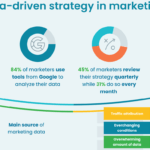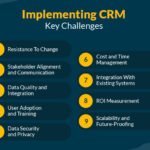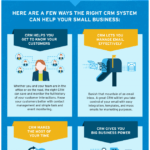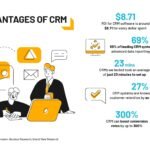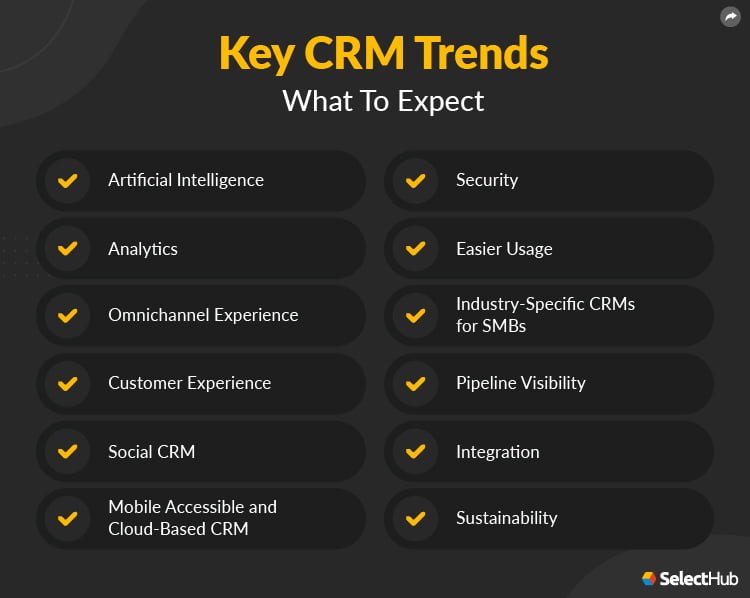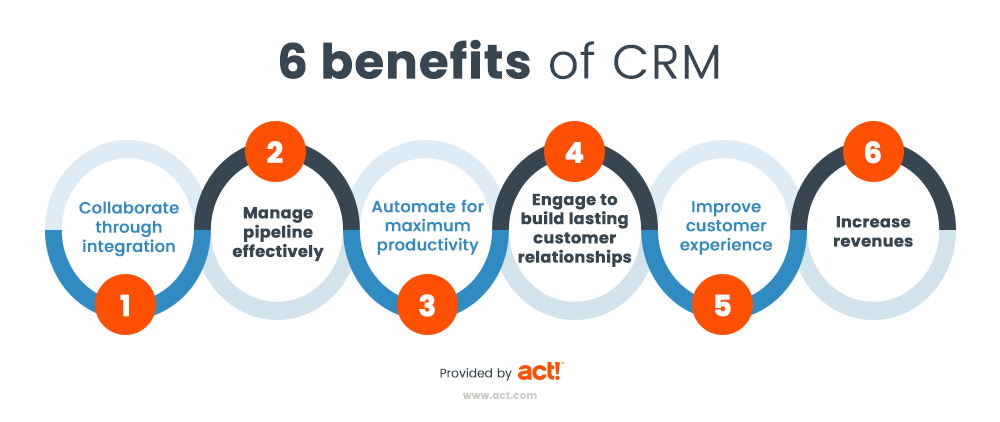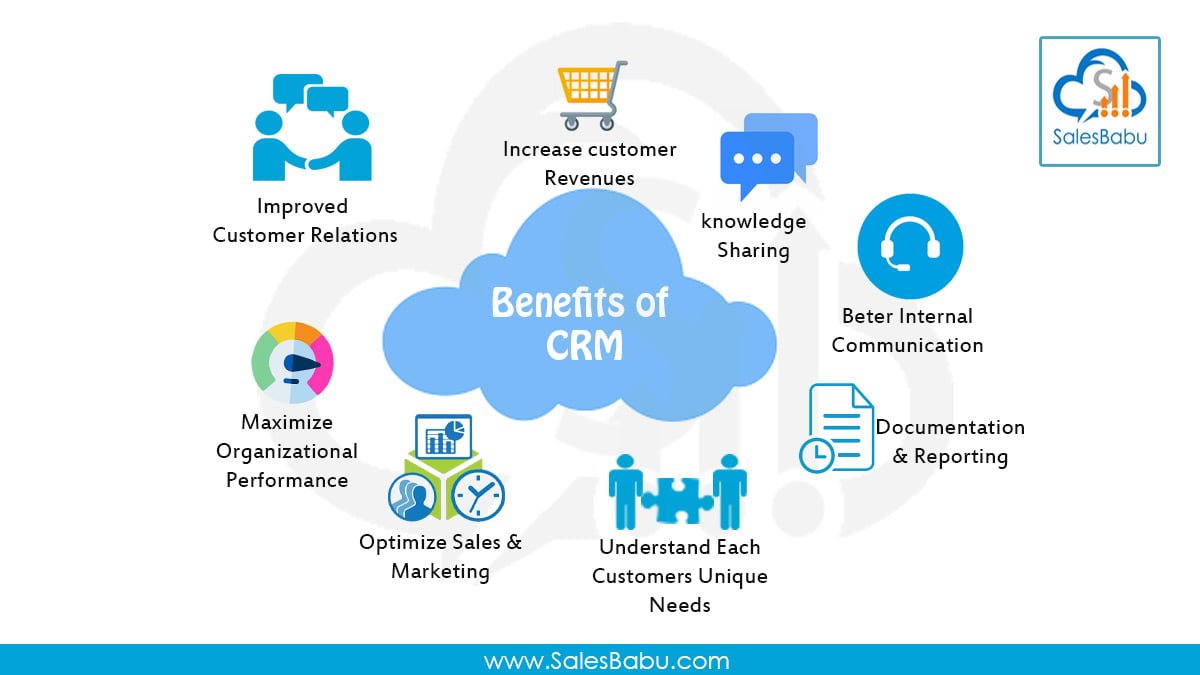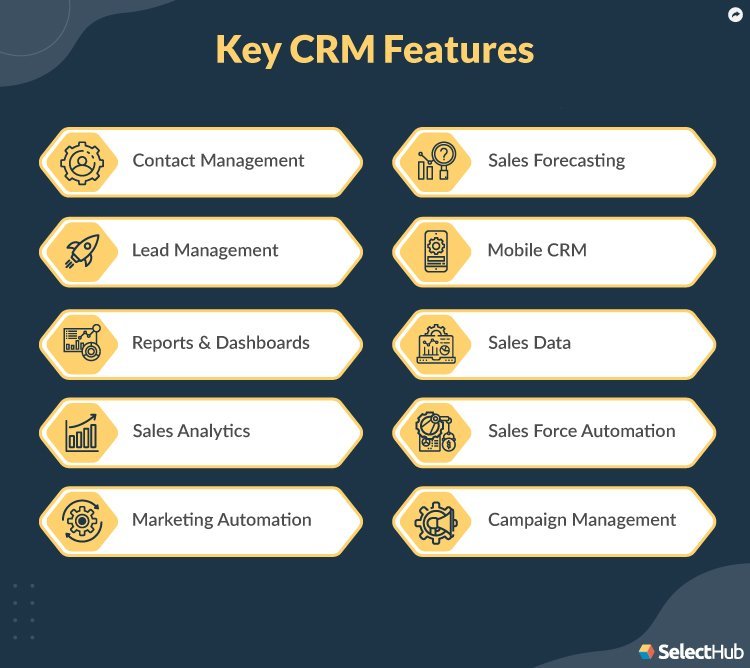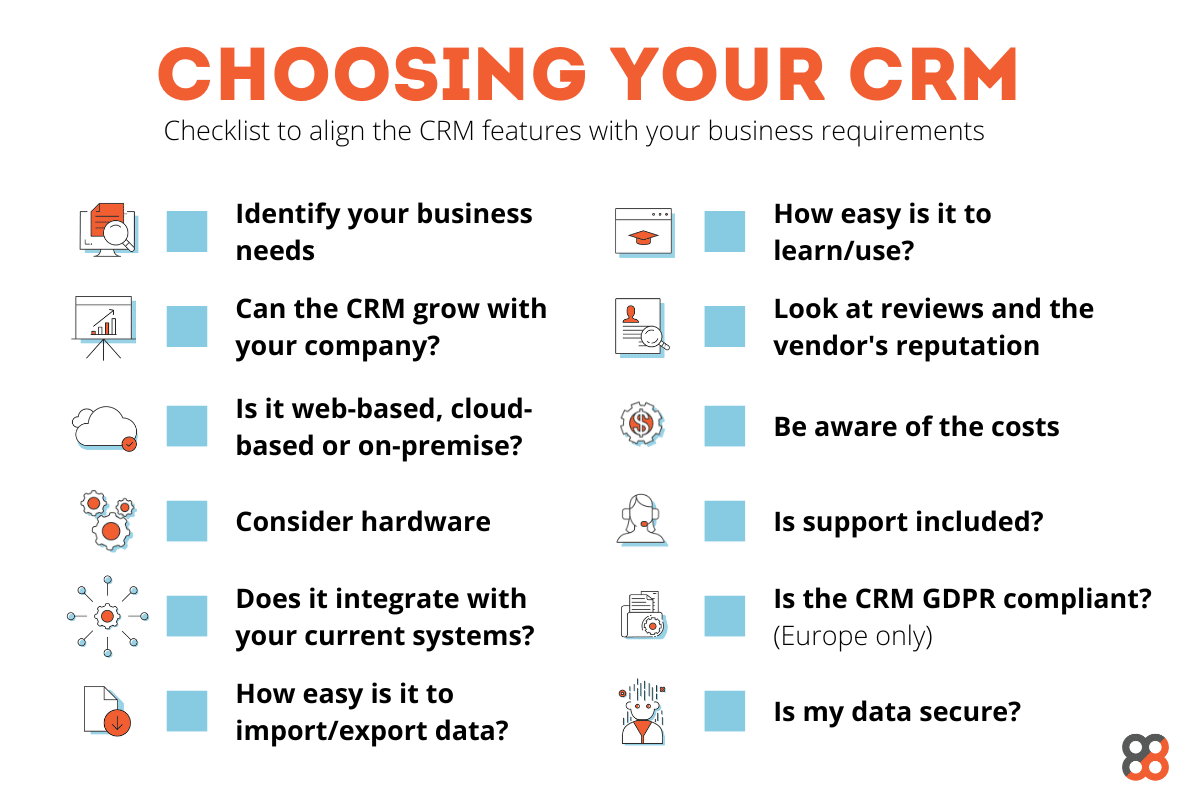The landscape of customer relationship management (CRM) technology is constantly evolving, with new trends emerging to help businesses better manage their customer interactions. These advancements are driven by the need for enhanced customer experiences, increased efficiency, and improved data-driven insights. By staying abreast of the latest trends, businesses can position themselves to unlock significant value from their CRM systems. In this article, we will explore some of the most notable trends in CRM technology and discuss how they are transforming the way businesses engage with their customers.
What Are the Latest Trends in CRM Technology?
Artificial Intelligence (AI) and Machine Learning (ML) in CRM
AI and ML are transforming the CRM landscape, enabling businesses to automate tasks, personalize customer interactions, and gain deeper insights.
| Feature | Description |
|---|---|
| Predictive analytics | AI algorithms analyze historical data to forecast customer behavior, such as churn probability or purchase intent. |
| Chatbots and virtual assistants | AI-powered chatbots provide instant customer support, answer frequently asked questions, and handle basic tasks. |
| Personalized recommendations | ML algorithms analyze customer data to recommend relevant products, services, or content based on their preferences. |
| Sentiment analysis | AI models can analyze customer feedback and social media posts to understand sentiment and identify areas for improvement. |
Customer Data Platform (CDP)
CDPs unify customer data from multiple sources into a single view, providing a comprehensive understanding of customer behavior and preferences.
| Feature | Description |
|---|---|
| Centralized data repository | CDPs collect data from various channels, including websites, apps, social media, and CRM systems. |
| Data enrichment and segmentation | CDPs enrich customer profiles with demographic, behavioral, and transactional data to enable targeted marketing. |
| Real-time customer insights | CDPs provide real-time access to customer data, allowing businesses to personalize interactions and optimize campaigns. |
| Cross-channel marketing automation | CDPs facilitate automated marketing campaigns across multiple channels, based on customer behavior and preferences. |
Cloud-Based CRM
Cloud-based CRM solutions offer scalability, affordability, and accessibility, enabling businesses to access CRM features from anywhere with an internet connection.
| Feature | Description |
|---|---|
| Scalability and flexibility | Cloud CRM systems can be easily scaled up or down based on business needs, without significant upfront investments. |
| Accessibility and mobility | Users can access CRM data and functionality from any device with an internet connection. |
| Cost-effectiveness | Cloud CRM eliminates the need for expensive hardware and software infrastructure, reducing overall costs. |
| Regular updates and security | Cloud providers handle updates and security patches, ensuring that CRM systems are always up-to-date and protected. |
Evolving Customer Relationships: The Latest in CRM Technology
Artificial Intelligence and Machine Learning in CRM
Artificial intelligence (AI) and machine learning (ML) are transforming CRM by automating tasks, personalizing customer interactions, and providing valuable insights. AI-powered chatbots provide instant support, while ML algorithms analyze data to predict customer behavior and optimize marketing campaigns. CRM systems are leveraging AI to streamline workflows, improve customer service, and drive sales growth.
Cloud-Based CRM Solutions
Cloud-based CRM solutions offer flexibility, scalability, and affordability, making them increasingly popular. Cloud CRM allows businesses to access their data and manage their customer relationships from anywhere, anytime, with no need for expensive hardware or software installations. This accessibility fosters collaboration and enables real-time insights.
Customer Data Platform (CDP) Integration
CDPs gather and unify customer data from various sources, providing a comprehensive view of customer behavior. By integrating CDPs with CRM systems, businesses gain a deeper understanding of their customers, enabling personalized experiences and targeted marketing campaigns. This data-driven approach enhances customer engagement and improves marketing effectiveness.
Omni-Channel Customer Experience
Consumers interact with businesses through multiple channels, including websites, mobile apps, social media, and email. Omnichannel CRM systems provide a unified customer experience across all touchpoints, ensuring seamless transitions and consistent messaging. This integrated approach fosters loyalty and strengthens customer relationships.
Focus on Customer Success
Modern CRM systems are shifting focus from sales and marketing to customer success. By tracking customer usage and providing ongoing support, businesses can identify and address challenges, maximizing customer value and driving long-term growth. This proactive approach builds trust and loyalty, ultimately leading to higher customer satisfaction and retention.
Frequent questions
What is CRM technology?
CRM technology is software that helps businesses manage customer relationships. It does this by storing and organizing customer data, automating tasks, and providing insights into customer behavior. CRM systems are used by businesses of all sizes to improve customer service, increase sales, and grow their business.
What are some of the latest trends in CRM technology?
The CRM technology landscape is constantly evolving, and there are several key trends that are shaping the future of the industry. Some of the most notable trends include:
Artificial intelligence (AI): AI is being used to automate tasks, provide personalized experiences, and improve customer service. For example, AI-powered chatbots can be used to answer customer questions, and AI-powered recommendations can be used to suggest products or services that customers might be interested in.
Cloud computing: Cloud-based CRM systems are becoming increasingly popular because they are more affordable and scalable than traditional on-premises systems. Cloud-based CRM systems also offer the advantage of being accessible from anywhere with an internet connection.
Mobile optimization: Businesses are increasingly relying on mobile devices to interact with customers. CRM systems are becoming more mobile-friendly to meet this need, providing customers with a seamless experience across all devices.
Integration with other business systems: CRM systems are becoming more integrated with other business systems, such as marketing automation, e-commerce, and accounting software. This integration allows businesses to have a more holistic view of their customers and their business operations.
What are the benefits of using a CRM system?
There are many benefits to using a CRM system, including:
Improved customer service: CRM systems can help businesses provide better customer service by providing customer service representatives with a comprehensive view of customer interactions. This information can be used to personalize interactions and resolve issues more quickly and efficiently.
Increased sales: CRM systems can help businesses increase sales by identifying sales opportunities, automating sales processes, and providing insights into customer behavior. For example, CRM systems can be used to track leads, manage sales pipelines, and create targeted marketing campaigns.
Increased customer loyalty: CRM systems can help businesses increase customer loyalty by providing personalized experiences and building stronger relationships with customers. For example, CRM systems can be used to send personalized emails, track customer preferences, and create loyalty programs.
How do I choose the right CRM system for my business?
When choosing a CRM system, it’s important to consider your business needs and goals. Some key factors to consider include:
The size of your business: Different CRM systems are designed for businesses of different sizes. If you’re a small business, you may want to choose a CRM system that is easy to use and affordable. If you’re a large enterprise, you may need a CRM system with more features and functionality.
Your budget: CRM systems can range in price from a few dollars per month to thousands of dollars per month. It’s important to choose a system that fits your budget.
Your industry: Some CRM systems are designed for specific industries, such as healthcare, retail, or finance. It’s important to choose a system that meets the needs of your industry.
Your technical skills: Some CRM systems are more user-friendly than others. If you’re not very technical, you may want to choose a system that is easy to learn and use.
Choosing the right CRM system can be a challenging process, but it’s an important investment for any business. By carefully considering your business needs and goals, you can choose a CRM system that will help you improve customer relationships, increase sales, and grow your business.



